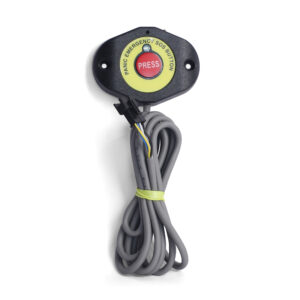ID – Personal Tracker
Contact UsID – Personal Tracker
A 2G personal pocket GPS tracker is a compact tracking device designed to provide location information and personal safety features for individuals. This portable tracker utilizes 2G (second-generation) cellular network technology for communication, allowing users to track their own or their loved ones’ whereabouts in real-time.
Here are some key features and benefits of a 2G personal pocket GPS tracker:
- Real-Time Tracking: The 2G personal pocket GPS tracker offers real-time tracking capabilities, enabling users to monitor the location of the tracked individual in real-time. The tracking information can be accessed through a web-based platform or a mobile application, providing instant updates about the person’s location.
- Compact and Portable: These trackers are small and lightweight, making them easy to carry in a pocket, bag, or attach to a keychain. Their compact design ensures they are inconspicuous and convenient for personal use.
- SOS Alert: Many 2G personal pocket GPS trackers are equipped with an SOS button that allows the user to send distress signals or emergency alerts. In case of an emergency or dangerous situation, pressing the SOS button can trigger immediate notifications to designated contacts or emergency services, providing added personal safety.
- Geo-Fencing: Some personal pocket GPS trackers support geo-fencing functionality. Users can set virtual boundaries or zones on a map, and if the tracked individual enters or exits these predefined areas, the user receives instant notifications. This feature is particularly useful for parents monitoring their children or ensuring the safety of elderly family members.
- Location History: The 2G personal pocket GPS tracker often stores location history, allowing users to review past routes and locations. This can be valuable for analyzing travel patterns, reviewing daily routines, or keeping a record of visited places.
- Battery Life: The battery life of a 2G personal pocket GPS tracker is an essential consideration. Most devices offer extended battery life to ensure uninterrupted tracking for longer durations. It is important to check the specifications and battery capacity of the tracker to ensure it meets your tracking needs.
- Two-Way Communication: Some personal pocket GPS trackers include two-way communication capabilities, allowing the user and the tracked individual to communicate through voice or text messages. This feature enables immediate interaction in case of emergencies or when regular communication is required.
It’s important to note that 2G networks are being phased out in some regions, and the availability of 2G coverage may vary. Before purchasing a 2G personal pocket GPS tracker, ensure that 2G network coverage is available in your area to ensure the functionality of the tracker.
A personal GPS tracker is a small electronic device that uses the Global Positioning System (GPS) to determine its exact location, as well as other technologies such as cellular networks and Wi-Fi, to transmit this location data to a central server or smartphone application. These trackers are designed to help individuals keep track of their own whereabouts, or that of a loved one, pet, or valuable asset.
Personal GPS trackers typically come in small, portable sizes and can be attached to a keychain, worn on a lanyard, or placed in a backpack or pocket. Some models also come with features such as panic buttons or geofencing, which allow users to set up virtual boundaries around certain areas and receive alerts when the tracker enters or exits these areas.
There are many different types of personal GPS trackers available on the market, each with their own set of features and capabilities. Some are designed specifically for tracking individuals or pets, while others are geared towards tracking vehicles or other valuable assets. When choosing a personal GPS tracker, it's important to consider factors such as battery life, range, and the level of accuracy and reliability of the tracking data.



